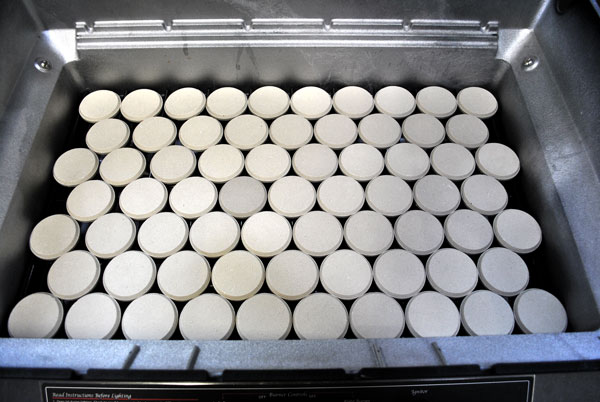These briquettes are recommended for gas grills since they do not absorb grease therefore reducing the chances for flare ups and hot spots.
Do ceramic briquettes work.
They provide the same heat dispersing features as ceramic briquettes but they do not have the same heat retention as ceramic briquettes.
Briquettes have long been the preferred fuel for barbecuing.
Ceramic briquettes share many of these qualities but they have the added benefit of lasting longer.
Charcoal briquettes also need to be replaced after each use and are harder to clean up.
Metal is not the best conductor of heat.
Briquette work just like lava stones where they are used to distribute heat evenly among other benefits.
Ceramic briquettes come in a wide variety of different styles including rounded shape briquettes pyramid shaped briquettes and other options that allow for the grease to flow through enabling ease of cleaning later on.
Traditional charcoal briquettes do not repel run off from food but rather retain it causing hot spots and flare ups.
An added advantage is that ceramic briquettes do not absorb grease which gives you less hot spots on your meat.
Ceramic briquettes are made of ceramic dust.
Which briquettes should you use ceramic briquettes.
The use of ceramic briquettes for the gas grills is the most common.
Steel which most heat shields are made of has a thermal conductivity score of 17.
Charcoal and wood briquettes achieve a high heat are inexpensive and cook food quickly.

